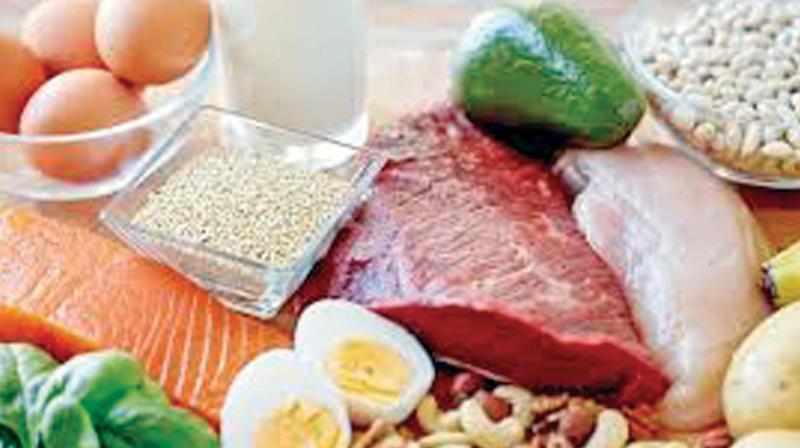Meat'ing your protein needs for healthy living
So, do not let a false claim stop you from enjoying your weekend treats. Instead, read about the facts while enjoying your chicken nugget!

If you enjoy the tasty chicken nugget at a fried chicken joint in the weekends or traditional chicken curry at a local eatery, you probably know how important protein is for your body. It helps keep your muscles strong and healthy. But that's not all protein does for you. In fact, protein is required by each and every cell of your body. Protein is, of course, a vital component of a healthy diet. Most people used to learn in their childhood that protein would make a person “big and strong”.
“But how can I get enough protein in my daily diet?” is the question that often cross many people particularly, the internet-savvy, time-starved urban millennials' minds. Globally, millennials account for 27% and in India, millennials are numbering over 40 percent of the population. According to a new report by the Health Foundation think tank, millennials may be the first generation to suffer from poorer health than their parents due to a host of physical and mental issues.
A high-protein, low-carbohydrate diet is today's millennial generation's preferred combo, but the focus must be on holistic and balanced nutrition, which will include protein from both vegetarian and non-vegetarian sources.
As the country is fast urbanizing, overall demand for meat products is also rising and millennials are driving changes in food consumption patterns faster than their previous generations ever did.
According to the National Institute of Nutrition, an average Indian adult needs about 1.0 g/kg/day as protein is required for the building, maintenance, and repair of tissues in the body. But the “right” amount of protein depends on many factors, including activity levels, age, muscle mass, and current state of health. Of the 20 amino acids, the building blocks of protein, our body can only make 11 and other 9 essential amino acids, must be obtained from the diet. Meat, milk and eggs are some of the most affordable and easily available options.
Meat is an integral part of India's culinary tradition and the country boasts an enviable array of cuisines with unique flavors and interesting historical lineage too. Although a wide variety of meats consumed in India such as fish, mutton, and beef, chicken meat remains the most popular and without any religious constraints. In Indian context, culture, traditions, customs, and taboos influence consumption of meat to a great extent. Indians consume on an average about 5 kg of chicken meat and 63 eggs a year. But these are way below the recommendations by the nutrition experts.
Many are unaware that India's meat and livestock sector plays a significant role in the country's economy as it contributes close to 4% of the GDP. Despite the fact that it lacks the glamour or may sound insignificant compared to other industries, it provides employment to hundreds of millions both directly and indirectly.
But still the industry remains quite a low profile one that many Urban Indians do not know how the tasty nugget they enjoy is actually produced. India is one of the most efficient producers and largest exporters of meat globally.
While balanced diet is the foundation of good health, unfortunately, there are lots of unfounded and unscientific claims being spread about meat linking it with corollary diseases, obesity and cancers of various types. Instead of believing whatever is getting posted on the social media, one must try to understand the science behind holistic nutrition and health and understand the role of protein particularly, meat and eggs through competent and trusted sources such as dietitians, nutritionists and fitness experts.
So, do not let a false claim stop you from enjoying your weekend treats. Instead, read about the facts while enjoying your chicken nugget! Bon appetite!
(The writer is a food connoisseur and agribusiness leader and executive director of CLFMA of India, the apex organisation and voice of the livestock sector)
